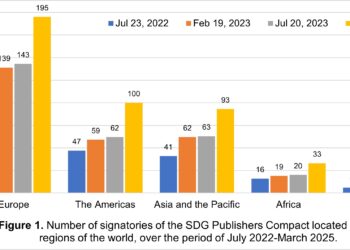“Ecosystem” is a term one often hears bandied about when describing the connected realm of the research community and the scholarly publishing industry. While not a perfect metaphor, it does capture the complex nature of a system that has continued to build and evolve for hundreds of years. Make a change in one area and you set loose a wave of changes, often unintended or unanticipated, in other areas.
As an example, the fascinating video below, on what happened when wolves were reintroduced into Yellowstone National Park in 1995, 70 years after they had vanished from the area. Over time the deer population in the park had massively grown due to the absence of one of their primary predators. The reintroduction of a small number of wolves changed not only the population levels of the deer, but their behaviors as well, which set off a complex trophic cascade, impacting animals from song birds to bears, greatly altering plant life and even reaching so far as to impact the physical geography of the park.
Fascinating stuff, and something to keep in the back of your mind before making that one small tweak to a complex system like publishing…
Discussion
6 Thoughts on "How Wolves Change Rivers: The Complexity of Ecosystems"
A truly fascinating video. I would be interested to read a critique of this by an environmental scientist. BTW, the howling of the wolves in the video set my own dog off. What a clamor!
Read L. David Mech. “Is science in danger of sanctifying the wolf?” doi:10.1016/j.biocon.2012.03.003
This feature recently published in Nature, by ace wolf reporter Emma Marris, explains some of the critiques that have challenged the original story of how wolves have affected Yellowstone National Park:
http://www.nature.com/news/rethinking-predators-legend-of-the-wolf-1.14841
The problem with the critiques is that it strains credibility to postulate that the reintroduction of wolves did not make a significant difference. Thanks David …
Which is not really what they say. Just that the predator effect is overplayed. The critiques suggest these systems are complex, chaotic and multifactorial unpredictable outcomes result whenever there is a significant change in the balance.
Which kind of backs the point David was making in his accompanying text.



